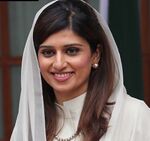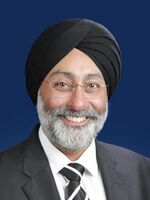United Green
| United Green | |
 | |
| Abbreviation | UG |
|---|---|
| Chairperson | Amit Vadekar |
| Founded | 1691 AN |
| Headquarters | Maulikpur |
| Ideology |
Majority: Conservatism Minority: Federalism Libertarianism Neoconservatism Right-wing populism Vinandism |
| Political position | Right |
| Official colours | Green |
| Majlis al-Shuyukh |
24 / 59 |
| Majlis al-Nuwaab |
1,530 / 3,161 |
| Election symbol | |
|
| |
The United Green (UG) is the largest and leading political party in Çakaristan. The party emerged after the inclusion of Haritdesh ahead of the 1691 elections. The party focused on uniting conservative and right-wing factions under one party. "Green" in the party's name indicates its original field of activity, the areas that belonged to The Green before 1687 AN. The white tiger on the party logo refers to Çakaristan's first National Animal.
The ideology of the party is mainly conservative, but there are also elements of libertarianism and neoconservatism. The party is strongly supportive of the monarchy. One wing of the party calls itself Vinandist, support for the House of Vinandy, of which House of Alsalam is a junior branch, on the Throne. An unorganised faction are supportive of House of Çakar.
The party supported Çakaristan's membership to the Union of States around the Sovereign Oceans, which later became the Collective Security Association. When that organisation fell, the party's opinion changed to an independent and sovereign vision for the nation. This was founded on a deep opposition to the Raspur Pact.
History
Within months of its formation, the party participated in the 1691 AN elections, which were won with an absolute majority. As a result, the party also delivered its first elected Grand Vizier, Jayanti Sinha. The party has had support mainly west of the Green Border since this election. This has seen the party expand to Kendall Khanate. In other states, support for the party is smaller.
Jayanti Sinha played a crucial role in the continuation of the Great Apollonian Empire as Çakar Empire. This earned the party a leading position in the new state system under the Akbar Constitution. The party did lose support among Craitists as the bond between the State and Religion widened. Formally, religion already had no role in state governance, but among other things, the national motto was no longer the creed of Craitism.
United Green's Grand Viziers
- See also: List of Grand Viziers
At 1719 AN, United Green is the only party to have supplied elected grand viziers:
| No. | Portrait | Name | Term | Home state |
|---|---|---|---|---|
| 2 | 
|
Jayanti Sinha | 1691 - 1698 AN | Haritdesh |
| 4 | 1704 - 1711 AN | |||
| 5 | 
|
Dervish Çelebi | 1711 - 1719 AN 1 | Poorajangal |
1: Since 1719 AN, Dervish Celebi was appointed by the Shahanshah, which meant that he was no longer acting on behalf of United Green.
Electoral history
Majlis al-Sultina
| Election year | No. of Majlis al-Sultina seats |
+/– |
|---|---|---|
| 1691 |
220 / 413 |
▲ 220 |
| 1695 |
230 / 413 |
▲ 10 |
Çakari Congress
| Election year | No. of Majlis al-Shuyukh seats |
+/– | No. of Majlis al-Nuwaab seats |
+/– |
|---|---|---|---|---|
| 1705 |
6 / 12 |
▲ 6 |
917 / 1,980 |
▲ 917 |
| 1707 |
11 / 24 |
▲ 5 | ||
| 1709 |
17 / 36 |
▲ 5 |
912 / 1,980 |
▼ 5 |
| 1711 |
17 / 40 |
|||
| 1713 |
21 / 53 |
▲ 4 |
1,153 / 1,980 |
▲ 241 |
| 1715 |
23 / 53 |
▲ 2 | ||
| 1717 |
21 / 41 |
▼ 2 |
1,169 / 2,435 |
▲ 16 |
| 1719 |
21 / 53 |
|||
| 1721 |
20 / 45 |
▼ 1 |
1,510 / 3,136 |
▲ 341 |
| 1723 |
24 / 62 |
▲ 4 | ||
| 1725 |
27 / 62 |
▲ 3 |
1,512 / 3,334 |
▲ 2 |
| 1727 |
22 / 62 |
▼ 5 | ||
| 1729 |
25 / 59 |
▲ 3 |
1,500 / 3,334 |
▼ 12 |
| 1731 |
21 / 59 |
▼ 4 | ||
| 1733 |
22 / 59 |
▲ 1 |
1,530 / 3,161 |
▲ 30 |
| 1735 |
21 / 59 |
▼ 1 | ||
| 1737 |
23 / 59 |
▲ 2 |
1,530 / 3,161 |
|
| 1739 |
24 / 59 |
▲ 1 |
Political positions
The party's main political positions are:
- An independent and sovereign policy for the Empire. No affiliation to international organisations that affect the sovereignty of the nation.
- A strong and well-equipped army, to protect the Empire.
- A balanced foreign policy focused on national security and interests.
- Preservation of the monarchy with separation of powers.
- Protecting fundamental rights, including gun rights.
- A strong role for the States, the national government alone for defence, foreign policy and guarding unity.